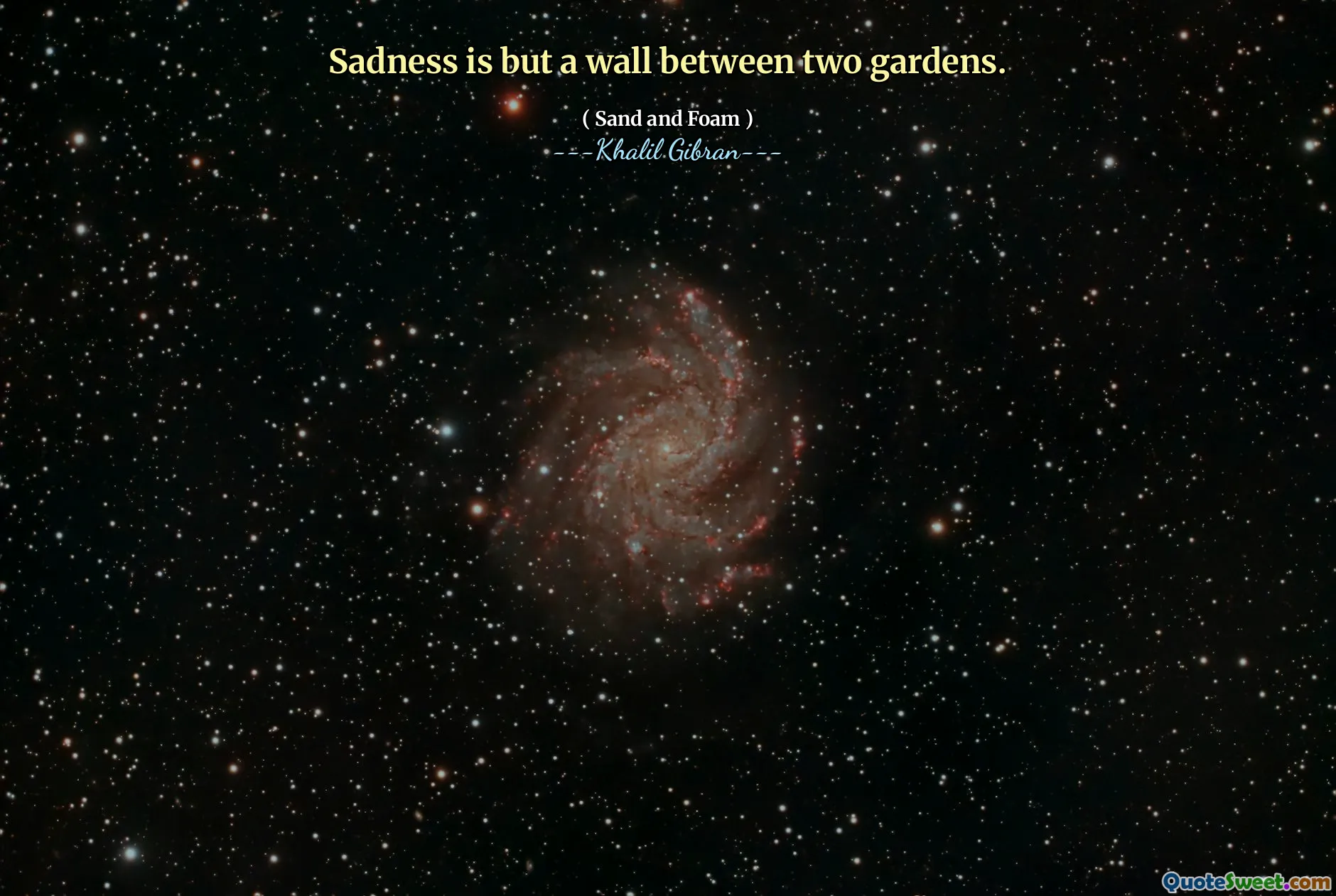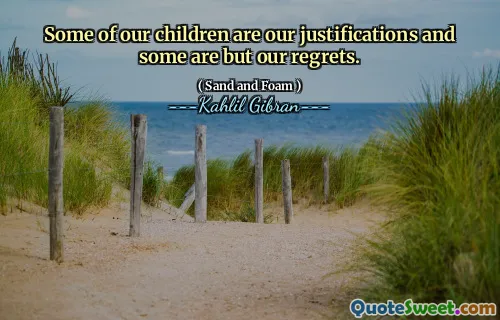
Sadness is but a wall between two gardens.
Khalil Gibran's poignant metaphor illuminates the transient nature of sadness and its role as a barrier on the journey toward inner harmony and understanding. This wall, instead of being an insurmountable obstacle, can be perceived as a temporary separation that exists between different states of the soul or phases of life. In many ways, sadness acts as a filter—an emotional wall that separates us from the serenity or joy that may be on the other side. Yet, this wall is not permanent; it is a passage that, when understood, can lead to growth and transformation. Recognizing sadness as a temporary barrier encourages a shift in perspective. Instead of viewing it as a permanent burden, we see it as an integral part of the human experience, one that underscores the value of happiness when it arrives. The metaphor also hints at the duality inherent in our emotions; just as gardens are spaces of beauty and nourishment, the sadness that separates them is merely a space of transition. Navigating this wall requires patience, acceptance, and perhaps most importantly, hope. It invites us to stand firm in the face of emotional barriers, seeing them not as walls that confine us but as gateways that, when crossed, bring us closer to understanding ourselves and the harmony that exists beyond the shadow of sorrow. Ultimately, Gibran's poetic insight reminds us that suffering and joy are interconnected, and that peace often lies just beyond the walls we perceive in our hearts.


